
Amor Mundi
The Breath of Podgorica
Upon entering Montenegro, the first sensation that one feels is the aroma of Oriental fragrances. From the airport to the hotel, the air is filled with a rich blend of vanilla, musk, and ambergris scents. This Oriental fragrance seems to spread among the crowds on the streets, making one wonder if the municipal government is conducting some kind of air purification campaign. Today, after shaking off Ottoman rule for about 145 years, this former Eastern region still emits a strong vitality of Oriental fragrances, which is truly amazing. This rich, luxurious, and complex fragrance has shaped people's aesthetic perception of fragrance throughout history. Of course, the Ottoman influence on Montenegro extends far beyond this.
The capital of Montenegro, Podgorica, is divided into two areas by the Ribnica River: the old city area established during the Ottoman period to the south of the river, and the new city area developed after the unification of Podgorica to the north of the river. Of course, "new" and "old" are relative concepts. After World War II, the Yugoslav government built a new city area west of the Morača River and named it NOVI GRAD (meaning "new city area"). This area is home to most embassies and government agencies. In contrast, the old city area east of the Morača River is more prosperous, with commercial streets and residential areas intertwined. As a symbol of the city, the Podgorica city government is also located here.
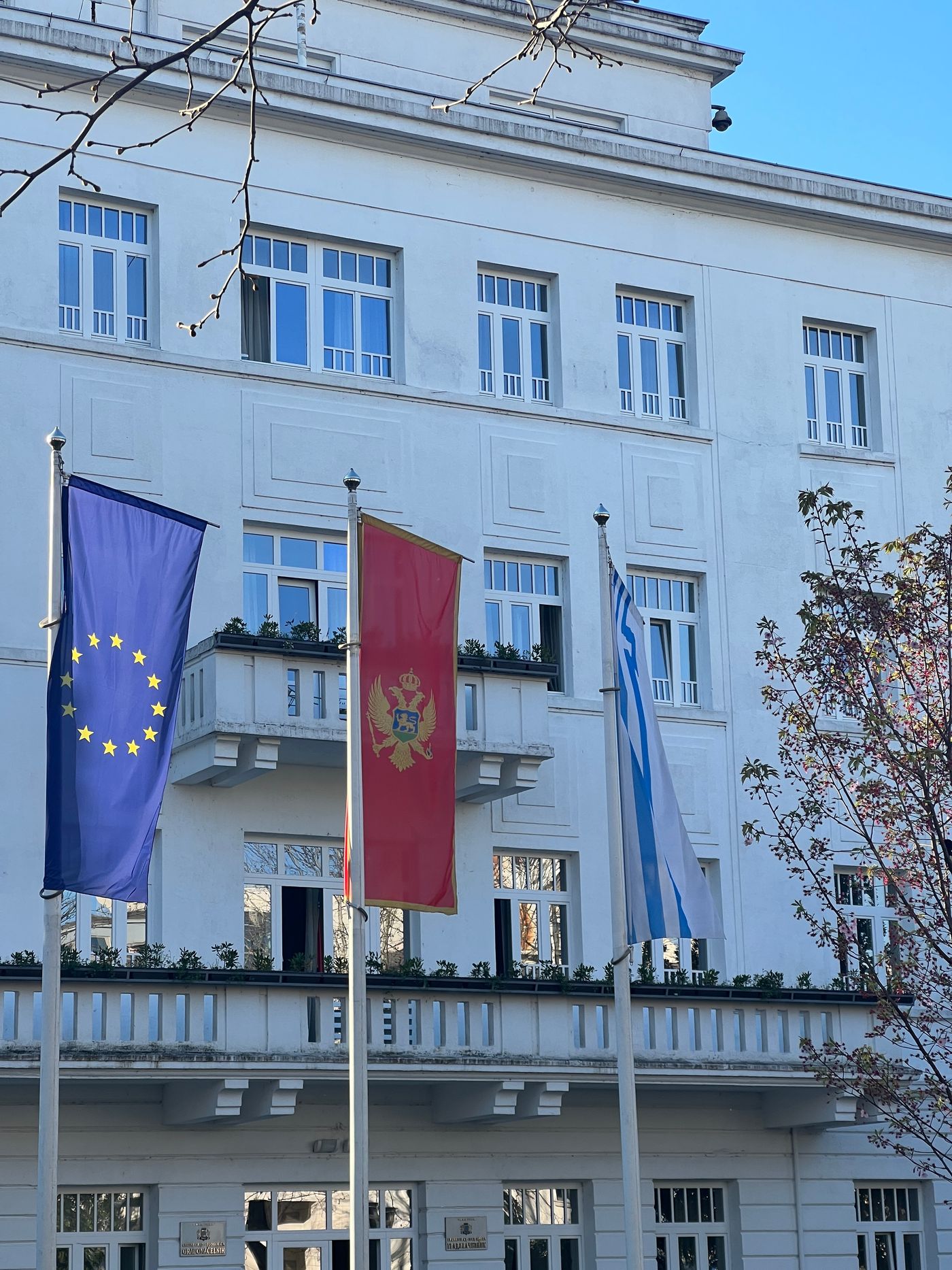
It is surprising that there are not many socialist buildings in the Soviet or Eastern European style on the streets of Podgorica. This is mainly because even during the era of the Socialist Federal Republic of Yugoslavia, Podgorica (formerly known as "Titograd") was only the capital of one of its member states. As for Belgrade, Yugoslavia spared no effort in development and construction. As the center of Yugoslavia, Belgrade was a fortress for Tito to consolidate his power and also the center of the country's wealth. Therefore, Belgrade's strength was directly related to how the Yugoslav government projected its power to the surrounding areas.
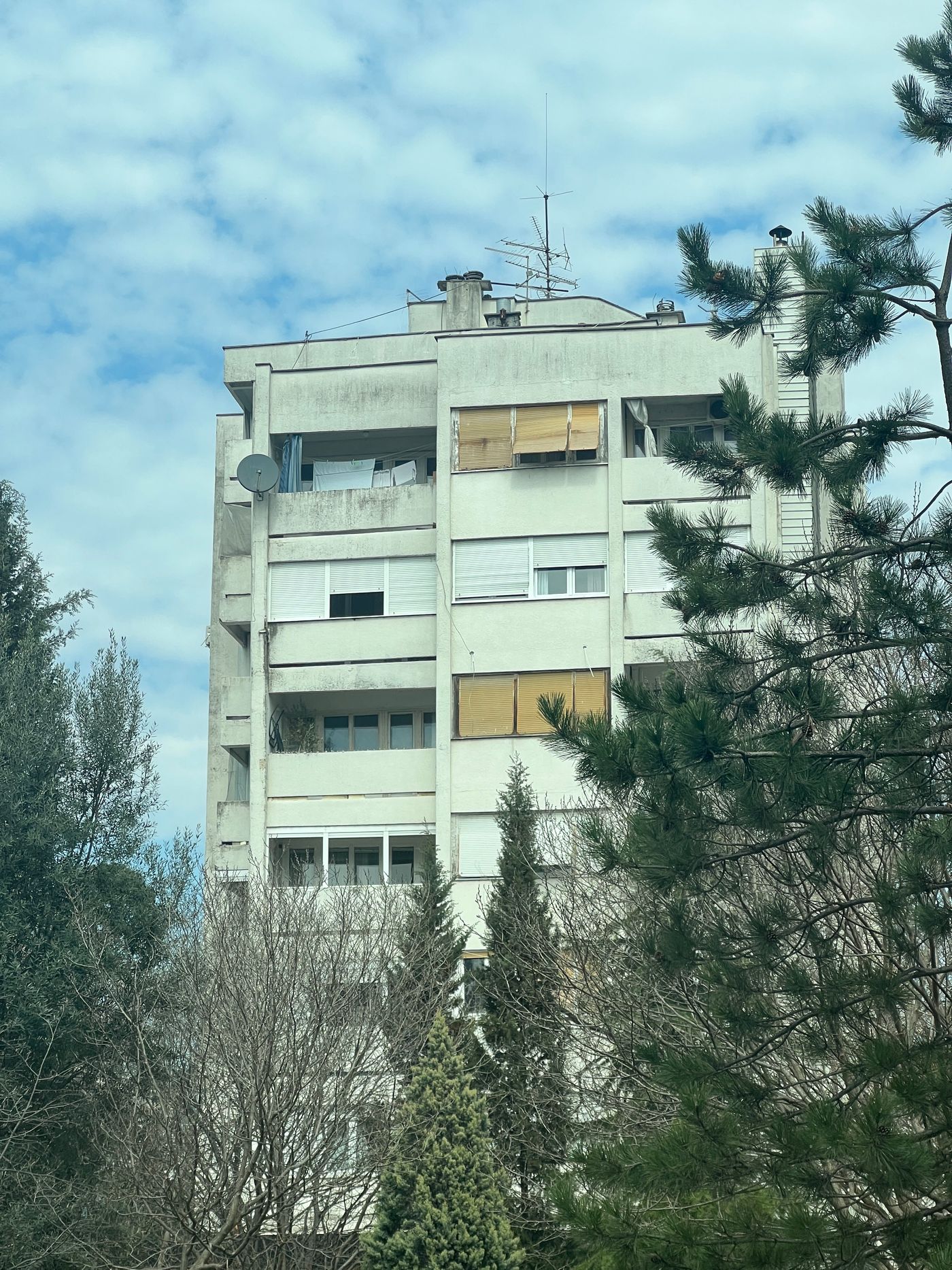
Speaking of Tito, even the people of Montenegro have complex feelings about him. As a strongman, Tito was indeed effective in using violence and power to suppress the complex ethnic and religious conflicts in the Balkans. However, it is also clear that this cost was built on the sacrifice of personal freedom, and fundamentally did not solve the conflict but rudely prohibited people from facing it. During the Tito era, Yugoslavia oscillated between the Western and Soviet blocs, and enjoyed a quite long period of peace and prosperity. As a socialist country, Yugoslavia was completely different from the socialist countries under the Soviet model in many ways. For example, Yugoslavia did not carry out radical land reform in terms of land, but continued to allow individuals to own land. In addition, in terms of religious policy, Yugoslavia respected traditional religious forces and only required the church to maintain an independent status, giving it a feeling similar to the Three-Self Patriotic Movement in China's Christian reform. Therefore, in the post-Tito era, many Muslims and Christians felt nostalgic for the religious tolerance of the Tito era.
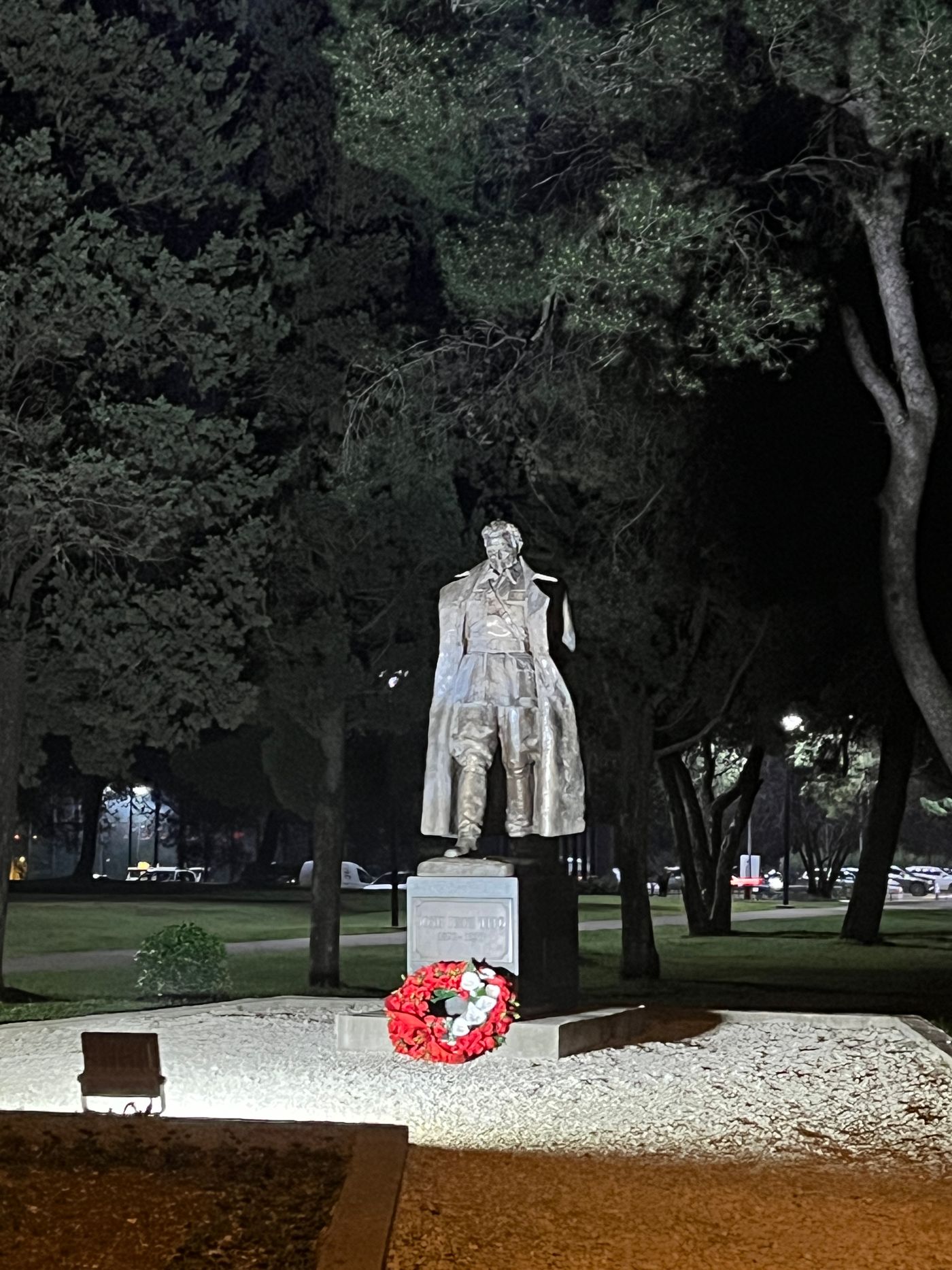
In post-socialist countries, a common way of insulting someone is to accuse them of being a communist. This is the case in countries such as Russia, Serbia, and Montenegro. However, life during the Communist Party rule in Yugoslavia and other countries was not that bad. At least in terms of education, healthcare, and employment, a Yugoslav citizen could enjoy welfare benefits far beyond what is available today. A Yugoslav family could live a relatively decent life on the income of one person alone; if both partners worked, their living conditions would be even more prosperous, and annual vacations and eating meat at every meal were normal things.
After dark, Podgorica is filled with the smell of burning coal. Montenegro is a country rich in coal resources (the name "Montenegro" has nothing to do with this, the mainstream explanation is the lush vegetation of the Lovćen Mountains, which looks black from afar). Since independence, the abundant coal resources of Montenegro have not brought any warmth to the Montenegrin people.
In Podgorica, most people choose to heat their homes with wood. However, since Albania banned logging two years ago, the price of wood in Montenegro has skyrocketed, from 35 euros per cubic meter in 2020 to 80 euros per cubic meter. Residents of Podgorica have started to use a mixture of coal and wood to keep warm in the winter. The price of coal from the Rudnik Uglja Pljevlja (Coal Mine Pljevlja) has increased from 50 euros per ton two years ago to 110 euros per ton. At the same time as the price of coal for residential use has risen, the state-owned power company of Montenegro, Elektroprivreda Crne Gore (EPCG), reached a long-term coal trade agreement with Serbia in 2022, sending brown coal to Serbia for a long period of time at a price of 28.8 euros per ton. In September of the same year, the Montenegrin government passed a law allowing EPCG to sell 10% of its shares on the open market. Most of the shares sold on the open market were purchased by recently affluent Serbian companies. The decision by the Montenegrin government to publicly sell EPCG shares is perplexing. EPCG fully owns the only coal mine in Montenegro, Rudnik Uglja Pljevlja, fully owns the only power grid company in Montenegro, CEDIS, and fully supplies 50% of Montenegro's electricity at the Pljevlja Power Station. As a fully integrated monopoly power giant, EPCG is not short of money from an economic perspective, and maintaining state ownership seems to be the only choice as a company that undertakes necessary public responsibilities. There may be a political explanation for this decision.
Since the separation of Serbia and Montenegro in 2006, the Montenegrin government has been swinging between pro-European and pro-Serbian factions. The current Prime Minister of Montenegro, Dritan Abazović, led the United Reform Action (URA) to form a government in March 2022. However, just five months later on August 20, the opposition parties, Democratic Party of Socialists (DPS), Social Democratic Party (SD), and Social Democratic Party of Montenegro (SDP), passed a vote of no confidence, forcing Abazović's government to become a caretaker government. President Milo Đukanović dissolved the parliament and called for new elections, but the opposition parties refused to participate, fearing further losses in seats. The opposition and the ruling parties have not yet reached an agreement on the date of the new elections.
Montenegro is a typical parliamentary republic with a figurehead president who has no real power except to receive foreign diplomats and sign legal documents. Since the disintegration of Yugoslavia, Milo Đukanović has been the only ruler of Montenegro, serving as the head of government for over 25 years. He was the Prime Minister of Montenegro from 1991-1998, 2003-2006, 2008-2010, and 2012-2016, and became the President in 2018. During the 1999 NATO bombing of Yugoslavia, Milo negotiated with NATO to ensure that Montenegro, as a member of the Federal Republic of Yugoslavia, was not bombed. After the fall of Yugoslavian president Slobodan Milošević in 2000, Đukanović negotiated with Serbia and signed the Serbia and Montenegro Union Treaty, providing a legal basis for the independence referendum. After Montenegro's independence referendum in 2006, Đukanović promoted a pro-Western foreign policy, pushing for Montenegro's accession to the European Union and NATO, and Montenegro became a NATO member in 2017. His leadership experience was a perfect fit for this historical process.
As a long-term ruler, Đukanović's corruption and graft have also been exposed. Since Montenegro's independence, his government has rapidly privatized the economy, leading to personal enrichment, embezzlement, and cronyism within the government. According to leaked Pandora Papers, Đukanović's personal wealth is estimated to be $10 million. In 2019, the Montenegrin people had had enough of the DPS's 25-year rule, and under the leadership of the URA, the largest anti-government protests in Montenegro's history erupted. As a result, the DPS government fell in 2020. Đukanović's term as president will expire in 2022, and various political forces are currently competing for this powerless presidency.
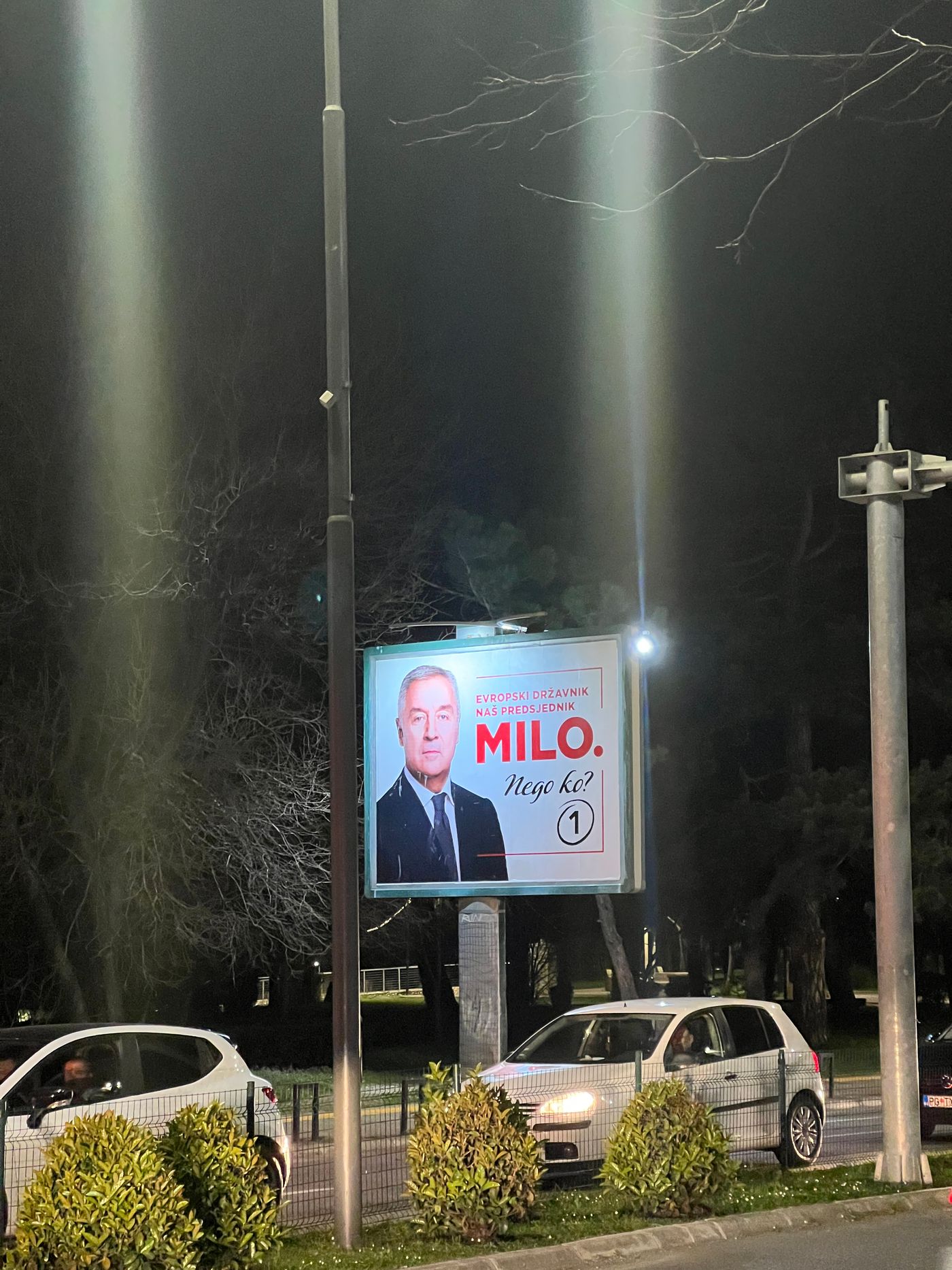
The anti-corruption protests in 2019 were not the only demonstrations that took place during that time, and it can even be said that they were not the direct cause of the downfall of the DPS government. On December 24, 2019, the Montenegrin Parliament drafted the "Law on Religious Freedom or Belief," which announced the confiscation of the property of the Serbian Orthodox Church in Montenegro and the transfer of all church property to the Montenegrin government. As soon as the bill was introduced, it immediately drew strong protests from Serbia, the Serbian Orthodox Church, Russia, and the Russian Orthodox Church. 70,000 people flooded the streets of Podgorica, which has a resident population of only 110,000. In the eight-month-long struggle, priests blessed their congregations with crosses in the streets, the Serbian Church generously supported all opposition forces, priests clashed with police, journalists were beaten, and opposition members were arrested. All these street clashes occurred in 2020, when the COVID-19 original strain was ravaging, and the large gatherings of people led to severe overspending on medical investments in Montenegro. This also led to a doomed medical reform by the subsequent government, which further increased the consumption tax to 21% in 2022 when inflation had already risen to 23%. Of course, these are all stories for another day. Let's talk about the religious reform of 2020, and trace back to 1918 for the root of all these conflicts.
In 1910, the Kingdom of Montenegro was established and the Montenegrin Orthodox Church began its independent religious activities. During World War I, the Kingdom of Montenegro was occupied by the Austro-Hungarian Empire, and the king went into exile overseas. In 1918, after a controversial referendum on legitimacy, the Kingdom of Montenegro joined with several Balkan regions to form the Kingdom of Yugoslavia. Naturally, a kingdom must have a church, so the Montenegrin Orthodox Church was incorporated into the Yugoslav Church. After the disintegration of the Socialist Federal Republic of Yugoslavia, the Serbian Church inherited the mantle of the Yugoslav Church and continued to play the role of the big brother of the Balkan Orthodox Church.
It wasn't until 1993 that the Montenegrin Orthodox Church was established again. The newly established Montenegrin Orthodox Church was poor and had no church property, few priests, and even the orthodoxy of its religious ceremonies was questioned. In this situation, the Serbian Church continued to preach in Montenegro and controlled the entire Montenegrin Orthodox Church system. With its vast wealth, the Serbian Orthodox Church wielded its baton in Montenegrin politics. In the end, in the 2020 protests against the reform, the Serbian Orthodox Church seized the banner of religious freedom, causing the EU forces that supported Milo to be helpless. Unusually, both Russia and the United States stood on the same side, opposing the Montenegrin Church Law. Under pressure at home and abroad, the Montenegrin Parliament withdrew the bill, and the DPS government fell as a result. President Milo Đukanović was punished by the Serbian Church, and Montenegro replaced its government with a pro-Serbian "Church Cabinet."
After being appointed as the country's prime minister, university professor Zdravko Krivokapić was elected as the chairman of We Won't Give Up Montenegro NGO, which was fully supported by the Serbian Orthodox Church during the 2019 anti-corruption protests and the 2020 anti-religious reform protests. The NGO was composed of intellectuals and professors sympathetic to the Serbian Orthodox Church and received financial and spiritual support from the Bishop of the Serbian Orthodox Church in Montenegro, Joanikije II, quickly becoming a powerful social force.
Krivokapić's government was mocked as the "church cabinet", and he was referred to as the prime minister of Joanikije II. He promised to establish an expert government, but he apparently had no intention or opportunity to fulfill this promise. In an attempt to rebuild the government's image, Krivokapić, along with political allies Aleksa Bečić (a member of parliament) and Dritan Abazović (the deputy prime minister and the next prime minister), jointly signed a commitment to never change the national flag, military flag, national anthem, and to not give up recognition of Kosovo's independence status.
What kind of government needs to sign a commitment to ensure that it will not betray the country? Unfortunately, loyalty is not always absolute and can be absolutely disloyal. Krivokapić failed to maintain 100% loyalty to Serbia in international relations, which led to his downfall after 14 months in office. The spark that ignited this situation was the Minister of Justice at the time, Vladimir Leposavić. Prior to entering politics, Leposavić was a lawyer for the Serbian Orthodox Church in Montenegro and reportedly also worked for the largest criminal organization in Montenegro.
During a hearing in the Montenegrin parliament, Vladimir Leposavić stated that he would deny the investigation results of the Srebrenica massacre. During the Bosnian War, the Serbian Republic in Bosnia and Herzegovina massacred more than 8,000 Bosniak Muslims in Srebrenica, which was classified by the International Criminal Tribunal for the former Yugoslavia as organized genocide. Leposavić's statement sparked condemnation from governments around the world. Under international pressure, Prime Minister Krivokapić chose to dismiss this lawyer for the criminal organization. In response, Serbians in Montenegro immediately launched protests, demanding the reinstatement of the Minister of Justice. A few days later, Prime Minister Krivokapić was removed from office by a vote of no confidence in the Montenegrin parliament.
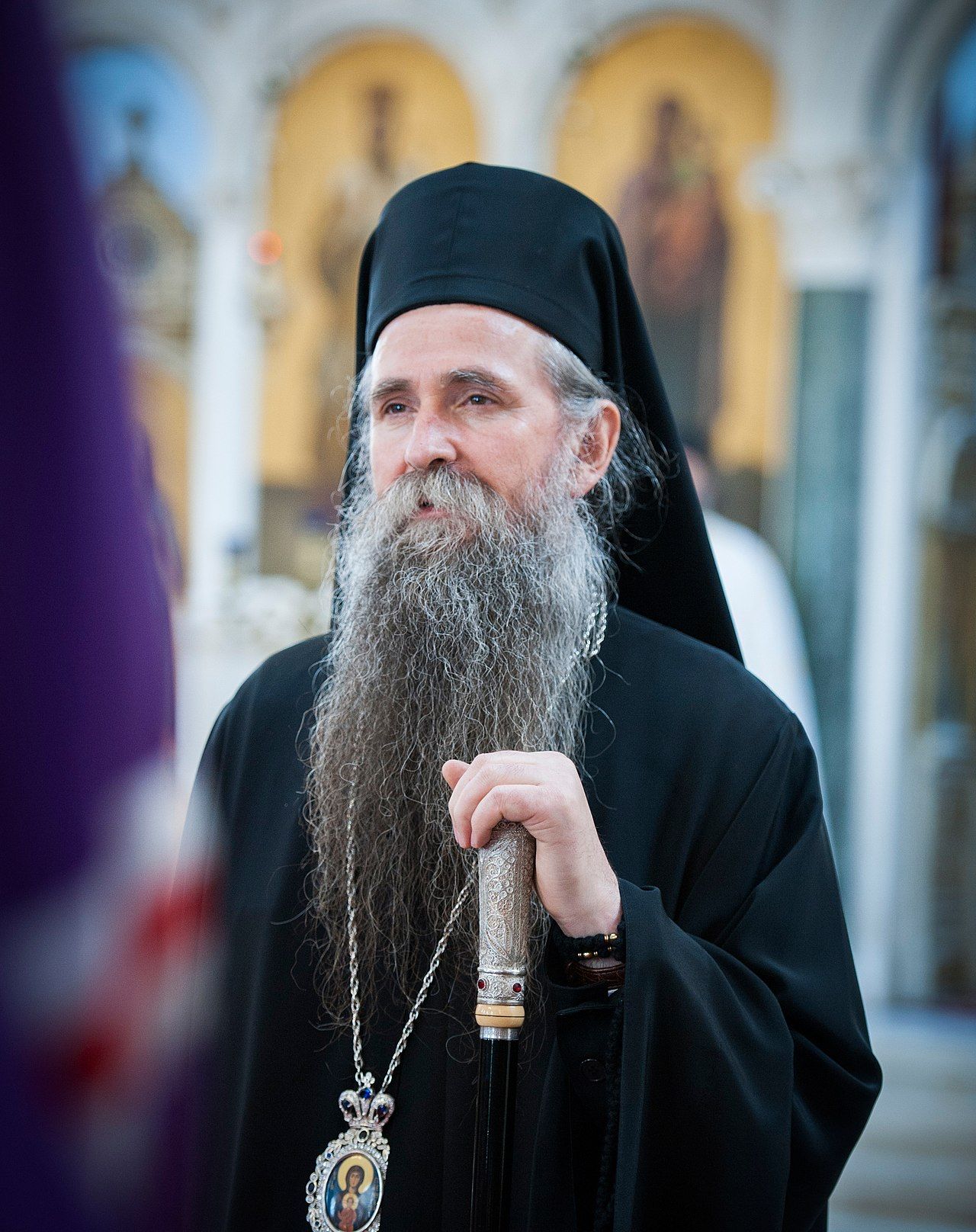
University professor Zdravko Krivokapić's ally, the leader of the URA party, Dritan Abazović, was born in 1985 and became the prime minister in 2022, making him one of the youngest heads of state in international politics. Abazović inherited the political promises of his predecessor, such as "establishing an expert government," "accelerating EU accession," and "cracking down on corruption," but he also inherited the lack of achievement from his predecessor. Abazović's resume is quite remarkable, as he is an Albanian Muslim and the first Albanian head of state in the country's history, as well as the first Muslim head of state. It is difficult to believe, and even more difficult to imagine, why an Albanian Muslim would choose to accept funding from the Serbian Orthodox Church. The Montenegrin people also feel confused, and perhaps it is because "they gave him too much."
Abazović has many perplexing deeds, and a few of them are listed here. At a memorial service for the Bosnian genocide, Abazović stated that there had never been any ethnic cleansing against Bosnia. The famous Serbian poet Matija Bećković praised Abazović for this statement, saying that Serbian youth should hold him high and lead him through the entire city of Belgrade. However, the victims of the Bosnian genocide were the local Muslims.
Before taking office, Abazović proudly stated that someone had offered him 21 million euros to give up his alliance with a pro-Serbian party. When prosecutors began investigating this obvious suspicion of bribery, Abazović widened his eyes and denied ever saying it, claiming that no one had ever proposed paying him. This makes people wonder how much his pro-Serbian political stance is worth if someone is willing to pay him 21 million euros to give it up. It seems that Abazović has inflated the price for himself, perhaps to impress President Vučić and the Serbian Orthodox Church.
It is rumored that Abazović has close ties to Albanian organized crime, and his family also runs companies in Serbia. He has been accused of eating from both sides of the plate.
After initiating a doomed healthcare reform, Abazović raised the consumption tax to 21% due to severe government overspending. According to the government's plan, the consumption tax will be further increased next year. Two members of Abazović's cabinet were asked to resign by the prime minister for initiating the Europe Now (Pokret Evropa sad!) movement. Currently, Prime Minister Abazović himself holds two ministerial positions. Under the pressure of rising taxes, severe inflation, and no progress in joining the EU, the Montenegrin parliament passed a vote of no confidence in Abazović, forcing him to step down as prime minister after only five months. The parliament has been dragging its feet on holding elections ever since, with various factions still at an impasse.
It is difficult to choose between a pro-Serbian prime minister who sells out his country and a corrupt pro-European president. The demands for anti-corruption are real, the emotions for preserving the church are real, and the pursuit of democracy is also real. However, the true and false interweave with the large checks from foreign powers, making every political action complicated. As Arendt said, argument is one of the basic elements of human political life and an important component of the public sphere. When politics loses dialogue, what do we have left? Nothing but increasingly expensive elections, candidates talking nonsense, and a vague threat of violence.
As the election and the Balkan Free Trade Agreement wait for the Montenegrin people to solve, I also make my way to Lustica Bay, exploring another possibility.
喜欢我的文章吗?
别忘了给点支持与赞赏,让我知道创作的路上有你陪伴。
发布评论…